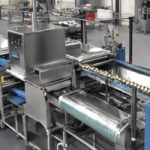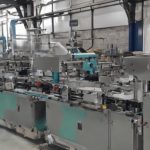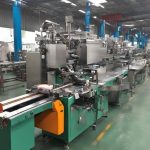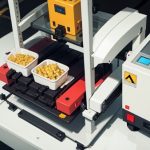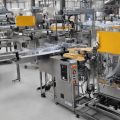A packing machine is a type of industrial equipment used to package products for distribution, storage, sale, and use. These machines can handle a variety of tasks, including filling, sealing, wrapping, and labeling. They are essential in many industries, such as food and beverage, pharmaceuticals, cosmetics, and consumer goods, to ensure that products are safely and efficiently packaged.
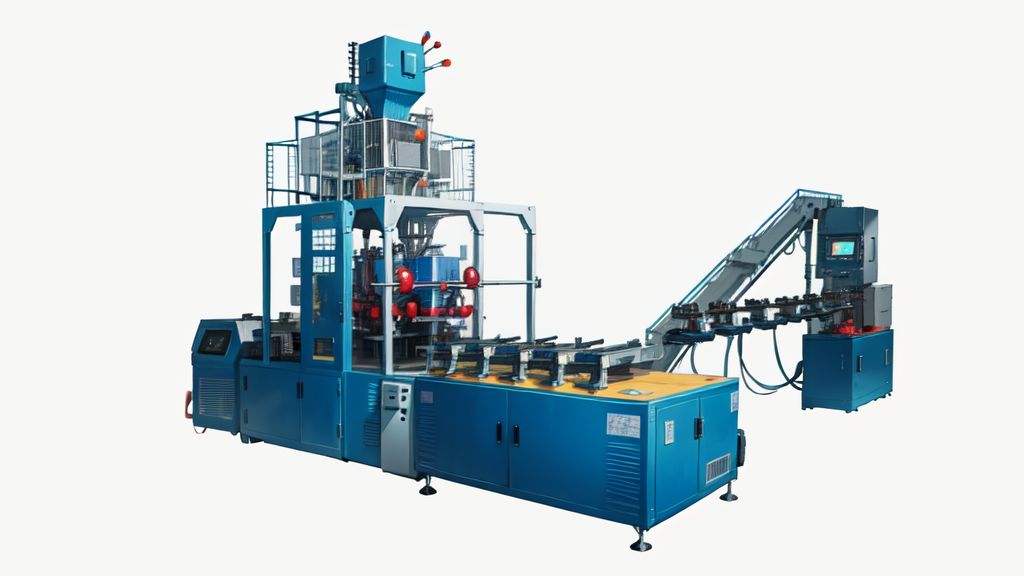
Types of Packing Machines
Packing machines come in various types, each designed for specific packaging needs. Some common types include:
Filling Machines
Filling machines are used to fill containers with liquids, powders, or granules. They are commonly used in the food and beverage industry to fill bottles, cans, and jars with products like milk, juice, and sauces. These machines can be manual, semi-automatic, or fully automatic, depending on the production requirements.
Sealing Machines
Sealing machines are used to seal packages to protect the contents from contamination and extend their shelf life. These machines can use various sealing methods, such as heat sealing, ultrasonic sealing, and induction sealing. They are widely used in the food, pharmaceutical, and cosmetic industries.
Wrapping Machines
Wrapping machines are used to wrap products in materials like plastic film, aluminum foil, or paper. These machines are commonly used in the food industry to wrap products like meat, cheese, and bread. Wrapping machines can be categorized into heat sealers, stretch wrappers, and shrink wrappers.
Labeling Machines
Labeling machines are used to apply labels to packages, providing important information such as product name, ingredients, and expiration date. These machines can handle various types of labels, including adhesive labels, shrink sleeves, and in-mold labels. Labeling machines are essential in ensuring that products are properly identified and comply with regulatory requirements.
Vacuum Packing Machines
Vacuum packing machines remove air from the package and seal it tightly, which helps to preserve the freshness and extend the shelf life of the product. These machines are commonly used in the food industry for packaging perishable items like meat, cheese, and vegetables.
Multi-function Packing Machines
Multi-function packing machines are versatile machines that can perform multiple packaging tasks, such as filling, sealing, wrapping, and labeling. These machines are ideal for businesses that need to package a variety of products with different packaging requirements. They are commonly used in the food, beverage, and cosmetic industries.
Factors to Consider When Choosing a Packing Machine
When selecting a packing machine, businesses should consider several factors to ensure they choose the right equipment for their needs:
Type of Packaging
Different packing machines are designed for different types of packaging, such as pillow packs, flat bottom packs, and seal packs. Businesses should choose a machine that is compatible with their preferred packaging type.
Speed Requirements
The speed of the packing machine, measured in bags or packages per minute, is an important consideration. Businesses should choose a machine that can meet their production demands without compromising quality.
Features and Specifications
Packing machines come with various features and specifications, such as dimensions, weight, and volume capacity. Businesses should choose a machine that can handle their specific packaging requirements.
Cost
The cost of the packing machine, including purchase, operation, and maintenance costs, is a crucial factor. Businesses should choose a machine that fits their budget while providing the necessary features and efficiency.
Efficiency
The efficiency of the packing machine, typically around 70-90%, is important for minimizing production costs and maximizing output. Businesses should choose a machine with high efficiency to improve their production processes.
Safety
Safety is a critical consideration when choosing a packing machine. Businesses should select a machine with minimal risk potential and ensure that it complies with safety regulations to protect their employees.
Environmental Impact
Businesses should consider the environmental impact of the packing machine, including its energy consumption and the materials used for packaging. Choosing environmentally friendly machines can help reduce waste and promote sustainability.
Training and Maintenance
Proper training and maintenance are essential for the efficient operation of packing machines. Businesses should ensure that their employees are adequately trained to operate and maintain the machines to avoid downtime and extend the equipment’s lifespan.
Conclusion
Packing machines play a vital role in the packaging process, ensuring that products are safely and efficiently packaged for distribution and sale. By considering factors such as type, speed, features, cost, efficiency, safety, environmental impact, and training, businesses can choose the right packing machine to meet their specific needs and improve their production processes.
